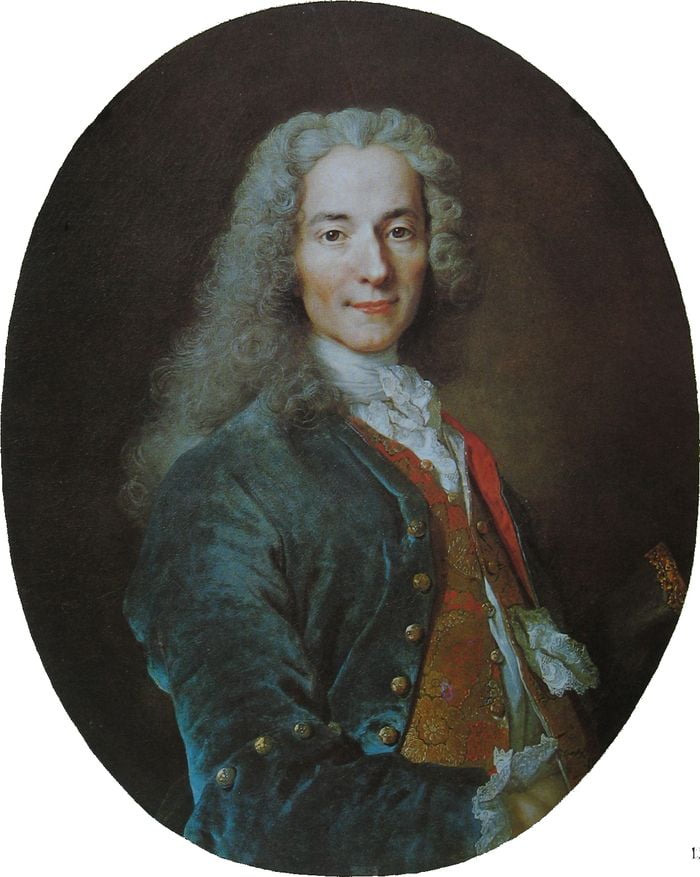Voltaire (Francois-Marie Arouet) (1694-1779)
Voltaire was born in Paris in 1694. His early education was received at a Jesuit school. He began writing verses at an early age, and though his father wished him to study law, he continued to write. He was several times imprisoned for libellous verses and often forced to go into exile.
A good part of his life he spent away from France. For over half a century he dominated the intellectual and artistic life of Europe, writing plays, histories, pamphlets, stories and satires. He was one of the greatest French writers and one of the most influential thinkers of modern times. His stories, of which he wrote a fairly large number, are philosophical and satirical tracts cast into narrative form. Memnon is what is known as a philosophical tale: it is one of the keenest satires Voltaire ever wrote.
The present version, anonymously translated, appeared originally in Romances, Tales, and Smaller Pieces of M. de Voltaire, vol. I, London, 1794
Memnon the Philosopher, or Human Wisdom
Memnon one day took it into his head to become a great philo¬sopher. There are few men who have not, at some time or other, conceived the same wild project. Says Memnon to himself, To be a perfect philosopher, and of course to be perfectly happy, I have nothing to do but to divest myself entirely of passions; and nothing is more easy, as everybody knows.
In the first place, I will never be in love; for, when I see a beautiful woman, I will say to myself, These cheeks will one day grow wrinkled, these eyes be encircled with ver¬milion, that bosom become flabby and pendant, that head bald and palsied. Now I have only to consider her at present in imagination, as she will afterwards appear; and certainly a fair face will never turn my head.
In the second place, I will be always temperate. It will be in vain to tempt me with good cheer, with delicious wines, or the charms of society. I will have only to figure to myself the consequences of excess, an aching head, a loathing stomach, the loss of reason, of health, and of time. I will then only eat to supply the waste of nature; my health will be always equal, my ideas pure and luminous. All this is so easy that there is no merit in accomplishing it.
Read More about Apologia of St John Damascene Against those who Decry Holy Images Part 1








